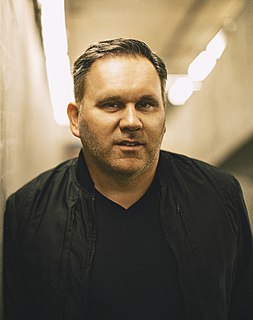A Quote by Mary Roach
Worry lives a long way from rational thought."---Self
Related Quotes
Philosophy is not a body of knowledge to impart to someone, that's why reading philosophy books isn't always the best way of learning philosophy. Philosophy is really more the process of rational engagement, rational reflection with a diversity of views and ideas and opinions and trying to sort of reason your way through to a more reflective position. I think if you look at it that way, philosophizing is to some extent some small way a part of almost everyone's lives although they don't recognize it as such and a lot of people are embarrassed about it.
My dog doesn't worry about the meaning of life. She may worry if she doesn't get her breakfast, but she doesn't sit around worrying whether she will get fulfilled or liberated or enlightened. As long as she gets some food and a little affection, her life is fine. But we human beings are not like dogs. We have self-centered minds which get us into plenty of trouble. If we do not come to understand the error in the way we think, our self-awareness, which is our greatest blessing, is also our downfall.
It can be seen as 'weak' to complain about health issues or worry about your health. But with younger guys, I think it's just a case of it being a secondary thought. We live pretty busy lifestyles these days. People have got work and social lives, and they party and spend a lot of time doing other things, and health just takes a backseat in a lot of cases. That's just the way a lot of people seem to live their lives.
God’s definition of success is really one of significance-the significant difference our lives can make in the lives of others. The significance doesn’t show up in won-loss records, long resumes, or the trophies gathering dust on our mantels. It’s found in the hearts and lives of those we’ve come across who are in some way better because of the way we lived.
So far as discipline is concerned, freedom means not its absence but the use of higher and more rational forms as contrasted with those that are lower or less rational. A free discipline controls the individual by appealing to his reason and conscience, and therefore to his self-respect; while an unfree control works upon some lower phase of the mind, and so tends to degrade him. It is freedom to be disciplined in as rational a manner as you are fit for.

































